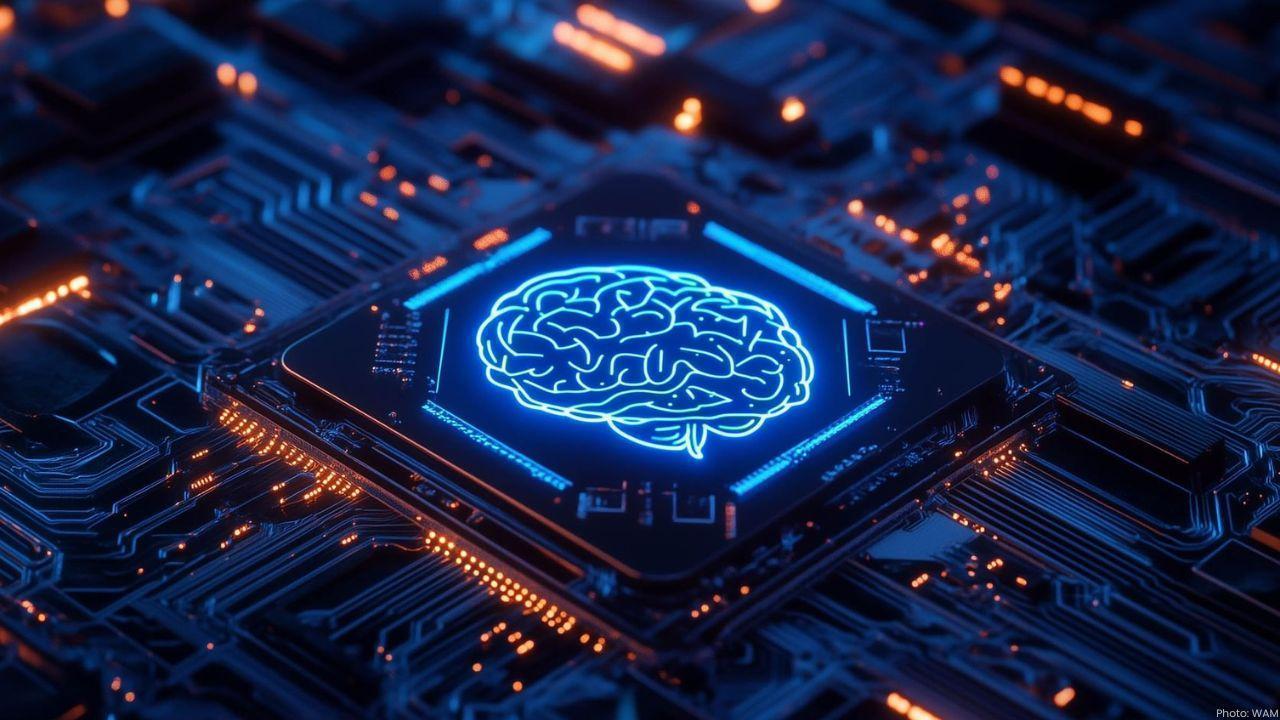
Post by : Layla Badr
Europe has taken a giant step forward in technology with the inauguration of its fastest supercomputer, Jupiter, in Germany. The event took place on Friday, marking a new era in computing power for the continent. Scientists, researchers, and industry experts have high hopes that Jupiter will help Europe tackle major challenges, from understanding climate change to catching up in the fast-growing artificial intelligence (AI) field.
What is Jupiter?
Jupiter is not just any supercomputer; it is Europe’s first exascale supercomputer. The term “exascale” refers to the ability to perform at least one quintillion calculations per second—that is a number with 18 zeros. To put it simply, Jupiter can perform tasks at a speed and scale that no other computer in Europe has reached before.
Stay informed with the latest news. Follow DXB News Network on WhatsApp Channel
The supercomputer is based at the Juelich Supercomputing Centre in western Germany. It occupies a large building covering 3,600 square meters, roughly half the size of a football field. Inside this space, rows of racks hold tens of thousands of powerful processors, working together to carry out extremely complex calculations.
The Technology Behind Jupiter
Jupiter is powered by around 24,000 Nvidia chips, which are highly favored in the AI industry for training complex models. These processors allow Jupiter to handle massive amounts of data, perform simulations, and carry out calculations that would take ordinary computers years to complete.
Thomas Lippert, the head of the Juelich Centre, described Jupiter as a “leap forward in the performance of computing in Europe.” He added that it is 20 times more powerful than any other computer in Germany, making it a true technological marvel.
The supercomputer will be available not just to scientists but also to companies that need high-performance computing for tasks like training AI models, data analysis, and simulations. This opens up possibilities for breakthroughs in fields such as medicine, climate research, physics, and engineering.
Funding and Collaboration
The creation of Jupiter comes with a hefty price tag of 500 million euros (around $580 million). Half of this funding comes from the European Union, while the other half is contributed by Germany. This collaboration highlights Europe’s commitment to investing in advanced technology and ensuring that its researchers and industries remain competitive globally.
Why Jupiter Matters
Boosting AI Research
Europe has long lagged behind the United States and China in the development of artificial intelligence. Jupiter aims to change that. With its incredible processing power, the supercomputer can train large AI models faster and more efficiently than ever before. This could help European researchers and companies develop AI technologies that rival those from other continents, giving Europe a stronger position in the global AI race.
Tackling Climate Challenges
Another critical area where Jupiter will make a difference is climate research. Scientists can use the supercomputer to run detailed climate simulations, helping them understand how the Earth’s climate is changing and how to prepare for future challenges. From predicting extreme weather events to studying the impact of human activities on the environment, Jupiter will provide valuable insights for policymakers and researchers alike.
Supporting Multiple Research Fields
Beyond AI and climate studies, Jupiter will be accessible for research across many scientific disciplines. This includes material science, physics, biology, and engineering, where complex simulations and calculations are often required. By providing access to such immense computing power, Jupiter allows researchers to experiment, innovate, and solve problems that were previously impossible to tackle.
The European Perspective
Europe sees Jupiter as a symbol of technological ambition and independence. In recent years, there has been growing concern that Europe was falling behind in fields like AI and high-performance computing. Jupiter is designed to bridge that gap, giving European scientists the tools they need to compete on a global level.
Thomas Lippert emphasized that Jupiter is the first supercomputer in Europe that can be considered internationally competitive for training AI models. This statement underlines the importance of the project not only for Germany but for the entire continent.
How Jupiter Works
Jupiter operates using a network of thousands of processors that work together to complete tasks. Each processor handles a small part of a calculation, but when combined, they can perform billions of billions of operations per second. These operations are used in simulations, data analysis, and AI model training, making Jupiter an indispensable tool for modern research.
The building itself is designed to house this enormous technological infrastructure. It requires advanced cooling systems to prevent overheating, sophisticated energy management to keep the supercomputer running smoothly, and high-speed connections to allow data to flow between processors and researchers efficiently.
The Global Context
Globally, the race for exascale supercomputers has been intense. Countries like the United States and China have already developed machines capable of performing at exascale levels. Jupiter ensures that Europe will not be left behind. By investing in cutting-edge technology, Europe is signaling its intention to remain at the forefront of scientific research and AI development.
With Jupiter now operational, the future looks promising for European research and technology. Scientists will be able to simulate complex scenarios, run experiments that were previously impossible, and develop AI solutions faster than ever before. Companies will have access to powerful tools to improve products, optimize processes, and innovate in ways that were not possible with standard computing systems.
Jupiter is more than a machine; it represents a commitment to progress, knowledge, and innovation. It is a testament to Europe’s ambition to lead in science, technology, and AI development while addressing critical challenges like climate change and technological competitiveness.
The inauguration of Jupiter marks a historic moment for Europe. It is not just the fastest supercomputer in the continent but also a symbol of scientific ambition, technological innovation, and international competitiveness. From AI research to climate simulations, Jupiter will serve as a vital tool for researchers, scientists, and industries across Europe.
As Europe embraces this new era of high-performance computing, Jupiter will help the continent catch up in global AI development, solve complex scientific problems, and pave the way for future technological breakthroughs. It stands as a shining example of what can be achieved when nations invest in knowledge, innovation, and collaboration.

Arab League backs Egyptian-Saudi plan for regional security
Arab League adopts Egyptian-Saudi security vision to strengthen cooperation, combat terrorism, and b

Dubai RTA Announces Traffic Diversions for Metro Blue Line Work
Dubai RTA begins Metro Blue Line construction, causing road closures near Centrepoint and Creek stat

Global Food Prices Stable in August, Meat Hits Record High
FAO reports global food prices steady in August as meat, sugar, and vegetable oils rise, while cerea

Luton Airport Tops Disability Access with New Assisted Services
Luton Airport transforms disability access with new assisted lounge, self-wheelchairs, and personali

Harshit Jain Deported from UAE for Tax and Gambling Crimes
Harshit Babulal Jain, wanted for tax evasion, money laundering, and gambling, was deported from UAE

Europe Launches Jupiter: Fastest Exascale Supercomputer
Germany unveils Jupiter, Europe’s first exascale supercomputer, aiding AI research, climate studies,

Typhoon Peipah Hits Western Japan: Heavy Rain, Landslide Alert
Typhoon Peipah struck western Japan, bringing heavy rain, landslides, and floods. Authorities warn r

Voices of UAE: Bouchra Izaabel-Transforming Fertility Care, One Heart and One Story at a Time
Transforming Fertility Care, One Heart and One Story at a Time

Pakistan Defeat UAE by 31 Runs in T20I Tri-Series Clash
Pakistan beat UAE by 31 runs in Sharjah T20I Tri-Series. Saim Ayub hit 69, Hasan Nawaz 56, while Has

Vice President’s Jiu-Jitsu Cup Ends with UAE Clubs Triumph
Sharjah Al Ain Al Jazira and Baniyas clubs shine as champions in the Vice President’s Jiu-Jitsu Cup

Liverpool beat Arsenal City fall to Brighton in EPL drama
Liverpool edge Arsenal with Szoboszlai’s stunning free-kick, while Manchester City suffer second str

Tawfiq wins UAE President’s Cup Arabian Horse Race in Russia
Tawfiq claimed victory at the UAE President’s Cup in Kazan, Russia, thrilling 20,000 fans with a dra

GCC Chief Urges Stronger Push on Global Free Trade Talks
GCC Secretary-General Jasem Albudaiwi pressed negotiators to intensify efforts on free trade pacts b

UAE and India Strengthen Trade Ties with Mumbai Business Talks
UAE Minister of Foreign Trade Dr. Thani Al Zeyoudi met Indian leaders in Mumbai to expand CEPA benef

UAE announces September fuel prices for petrol and diesel
The UAE Fuel Price Committee set September 2024 rates: Super 98 at AED 2.90, Special 95 and Diesel a